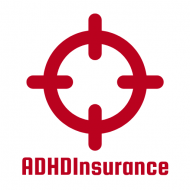In the intricate tapestry of American healthcare policy, few threads are as vibrant or complex as those related to mental health and educational support for conditions like Attention-Deficit/Hyperactivity Disorder (ADHD). The appointment of key figures within the Trump administration to healthcare roles introduces a new dynamic that could reshape the landscape of ADHD education and support programs across the country. As advocates, educators, and families navigate the evolving policy environment, understanding the potential implications of these appointments becomes critical. This article delves into how Trump’s healthcare appointees may influence ADHD initiatives, exploring both the opportunities and challenges that lie ahead for those dedicated to enhancing the lives of individuals with ADHD and their support systems. Whether it’s through changes in funding, policy directives, or organizational focus, the impact of these decisions will reverberate throughout schools, clinics, and families, redefining the approach to ADHD assistance in the years to come.
Table of Contents
- Exploring the Landscape of ADHD Education Under Trump’s Healthcare Policies
- The Role of Appointees in Shaping ADHD Support Programs and Funding
- Integrating Evidence-Based Practices: Recommendations for Future Strategies
- Advocating for ADHD Awareness: Bridging Gaps in Education and Resources
- Q&A
- Closing Remarks

Exploring the Landscape of ADHD Education Under Trump’s Healthcare Policies
The landscape of ADHD education has undergone significant transformations under recent healthcare policies, revealing both challenges and opportunities. With the appointment of leaders who prioritize deregulation, many support programs have felt the ripple effects. Changes in funding structures and access to medical resources can hinder the stability of programs focused on educating and supporting children with ADHD. This ripple effect is often exacerbated by inconsistency in state-level policies, leading to a patchwork of available resources. In this shifting environment, educators and parents must navigate through a maze of varying levels of support, which can greatly influence a child’s educational experience and outcome.
Moreover, the emphasis on school choice and privatization could reshape the way ADHD educational programs are delivered. As public funding shifts, there is a growing concern about the fate of essential services, particularly those tailored to children with ADHD. Some potential impacts include:
- Fragmentation of Services: Many families may find themselves accessing a blend of public and private resources, complicating cohesive education strategies.
- Access to Specialized Training: Teachers may receive inadequate training on ADHD if funding toward professional development is restricted.
- Increased Parental Burden: Parents may need to advocate more vigorously for their child’s needs amidst a landscape of shifting policies.
| Impact Area | Potential Effects |
|---|---|
| Funding Accessibility | Reduced access to ADHD-specific programs |
| Teacher Training | Inconsistent knowledge of ADHD among educators |
| Parental Support | Increased need for parental advocacy |

The Role of Appointees in Shaping ADHD Support Programs and Funding
The influence of appointees within the healthcare system is critical, especially for programs aimed at supporting individuals with ADHD. These leaders are responsible for shaping policies and allocating funding that can either bolster or diminish educational resources and support structures tailored for ADHD. Their affiliations, priorities, and understanding of ADHD can dramatically sway the development of effective interventions, including:
- Increased Funding: Appointees who recognize ADHD’s impact on education can advocate for enhanced funding directed toward specialized training for educators.
- Policy Development: Strategic policies promoting inclusion and support services in schools may emerge under leaders who prioritize mental health awareness.
- Community Support Initiatives: Initiatives that foster community engagement and parent training programs can be influenced by appointees committed to holistic support systems.
As discussions around healthcare and education reform evolve, the landscape for ADHD support programs is susceptible to the ideologies held by appointees. For example, if budget cuts are prioritized, the resulting reduction in services could hinder the ability of educational institutions to effectively meet the needs of students with ADHD. Conversely, proactive leadership can lead to the establishment of new programs focusing on:
| Program Type | Description |
|---|---|
| Advocacy Training | Workshops designed to empower families to navigate healthcare systems. |
| Teacher Workshops | Training programs that equip educators with strategies to support ADHD students. |
| Peer Support Groups | Establishing networks for students and parents to share experiences. |
Integrating Evidence-Based Practices: Recommendations for Future Strategies
To effectively integrate evidence-based practices into ADHD education and support programs, a multi-faceted approach is essential. Collaborating across sectors—including educators, healthcare providers, and families—can create a comprehensive support system for children with ADHD. Key strategies could include:
- Professional Development: Ongoing training for educators on ADHD-specific instructional strategies.
- Parental Involvement: Encouraging active participation from parents in their child’s educational journey.
- Resource Accessibility: Ensuring that evidence-based resources and tools are readily available to all stakeholders.
- Interdisciplinary Collaboration: Fostering partnerships among schools, healthcare providers, and community organizations.
Furthermore, by utilizing data-driven models, programs can adapt and fine-tune their approaches to support ADHD students more effectively. Here’s a simple overview of how adapting evidence-based strategies may look in practice:
| Strategy | Implementation | Expected Outcome |
|---|---|---|
| Regular Training Workshops | Quarterly sessions with expert-led discussions | Increased teacher confidence and competence in ADHD support |
| Parent Education Programs | Monthly meetings focusing on ADHD resources | Stronger home-school connections and support |
| Data Tracking Systems | Implementing tools to track student progress | More personalized learning plans and interventions |
By prioritizing these strategies, future ADHD programs can not only improve educational outcomes but also foster a stronger sense of community support around families facing the challenges of ADHD. Engaging stakeholders in an ongoing dialogue will enhance the sustainability of these evidence-based practices over time.
Advocating for ADHD Awareness: Bridging Gaps in Education and Resources
Understanding ADHD is crucial, and as education systems evolve, so must the resources that support students with this condition. Trump’s healthcare appointees have the potential to influence educational and support programs significantly. By focusing on comprehensive training for educators about ADHD, these leaders can ensure that educators are equipped with the necessary tools and knowledge. Improved training can foster environments where students with ADHD receive the support they need to thrive academically and socially. Key areas of focus could include:
- Awareness Programs: Implementing initiatives that educate all school staff about ADHD.
- Resource Accessibility: Ensuring materials and resources on ADHD are easily accessible for educators and parents.
- Supportive Policies: Advocating for policies that promote inclusion and support for students with ADHD.
Moreover, the intersection of healthcare policies and education cannot be understated. Strengthened advocacy and collaboration between education and health sectors can lead to improved outcomes for ADHD support programs. There is a critical need for increased funding and allocation of resources that directly address the educational gaps faced by students with ADHD. One effective way to visualize this connection is through a simplistic table representation of potential impacts:
| Impact Area | Potential Actions |
|---|---|
| Education | Enhancing teacher training on ADHD recognition and management |
| Resources | Allocation of tools for personalized learning plans |
| Community Support | Establishing local support groups for families |
Q&A
Q&A: How Trump’s Healthcare Appointees May Affect ADHD Education and Support Programs
Q1: Who are the key healthcare appointees in the Trump administration that might influence ADHD education and support programs?
A1: The key healthcare appointees include the Secretary of Health and Human Services, as well as the heads of relevant agencies such as the CDC and NIH. Other influential figures could be advisors in education and mental health policy who focus on childhood development issues. Each of these appointees can shape the direction of funding, policy initiatives, and research that directly impacts ADHD programs.
Q2: What specific policies or initiatives could these appointees promote regarding ADHD education and support?
A2: Appointees may advocate for policies that emphasize research funding for ADHD, improve access to treatment, or enhance training for educators in recognizing and addressing ADHD in the classroom. They might push for an integrated approach that combines healthcare and educational strategies to support children with ADHD and their families.
Q3: How might new regulations or guidelines from these appointees change the landscape for ADHD education programs?
A3: New regulations could streamline the process for schools to access federal funding for ADHD support services, or they could mandate more comprehensive training programs for educators. On the flip side, if the administration prioritizes budget cuts or shifts focus away from mental health initiatives, we could see a reduction in available resources for ADHD support.
Q4: What effects could these healthcare policies have on existing programs that support children with ADHD?
A4: If supportive policies are implemented, existing programs may receive increased funding and visibility, leading to broader outreach and enhanced services. Conversely, if policies are restrictive, programs may struggle with reduced funding or resources, potentially limiting their ability to support children effectively.
Q5: How should advocacy groups prepare to respond to changes in healthcare policy that may affect ADHD support?
A5: Advocacy groups should stay informed about policy developments and engage in proactive communication with lawmakers to advocate for evidence-based approaches. They may also consider forming coalitions with other organizations to amplify their voice and impact. Additionally, they can develop public awareness campaigns to educate the community about the needs of children with ADHD.
Q6: What role can parents and educators play in influencing the outcomes of these healthcare initiatives?
A6: Parents and educators can be powerful advocates for ADHD support by voicing their experiences and needs to policymakers. They can participate in local school boards, support advocacy groups, and foster awareness initiatives. By sharing their stories and collaborating with other stakeholders, they can help shape policies that effectively support children with ADHD.
Q7: In light of potential changes, what should families with children affected by ADHD be aware of?
A7: Families should stay updated on local and national developments regarding ADHD support and funding. It’s important for them to be vigilant about their children’s educational and healthcare needs and to engage with schools and healthcare providers to ensure they are receiving appropriate resources. Building a supportive community with other families can also provide valuable emotional and practical support during times of change.
Q8: What are the long-term implications of these changes for ADHD awareness and treatment?
A8: The long-term implications could vary significantly depending on the administration’s approach. A supportive climate could lead to increased awareness and improved treatment options, helping to destigmatize ADHD and foster better outcomes for affected children. Conversely, negative changes could retrench existing stigmas, limit resources, and ultimately hinder progress in understanding and supporting ADHD.
Conclusion: As the healthcare landscape evolves, stakeholders must actively engage in discussions and actions that could influence ADHD education and support programs for years to come.
Closing Remarks
the evolving landscape of ADHD education and support programs stands at a pivotal juncture, shaped by the ideologies and decisions of Trump’s healthcare appointees. As policies are reevaluated and funding is scrutinized, the impact on educators, families, and those affected by ADHD remains to be seen. The actions of these officials could potentially enhance or hinder access to vital resources and interventions that are crucial for fostering understanding and support for individuals navigating ADHD. As we look forward, it is essential for stakeholders to advocate for thoughtful approaches that prioritize the needs of students with ADHD, ensuring that the conversation around their education and support remains robust and inclusive. In a climate where change is constant, the commitment to empowering those affected by ADHD through informed policy decisions will ultimately determine the future of educational resources and support systems.
Dr. Jonathon Preston is a respected mental health specialist dedicated to helping individuals overcome challenges. With advanced training in psychology and decades of experience in the mental health field.
